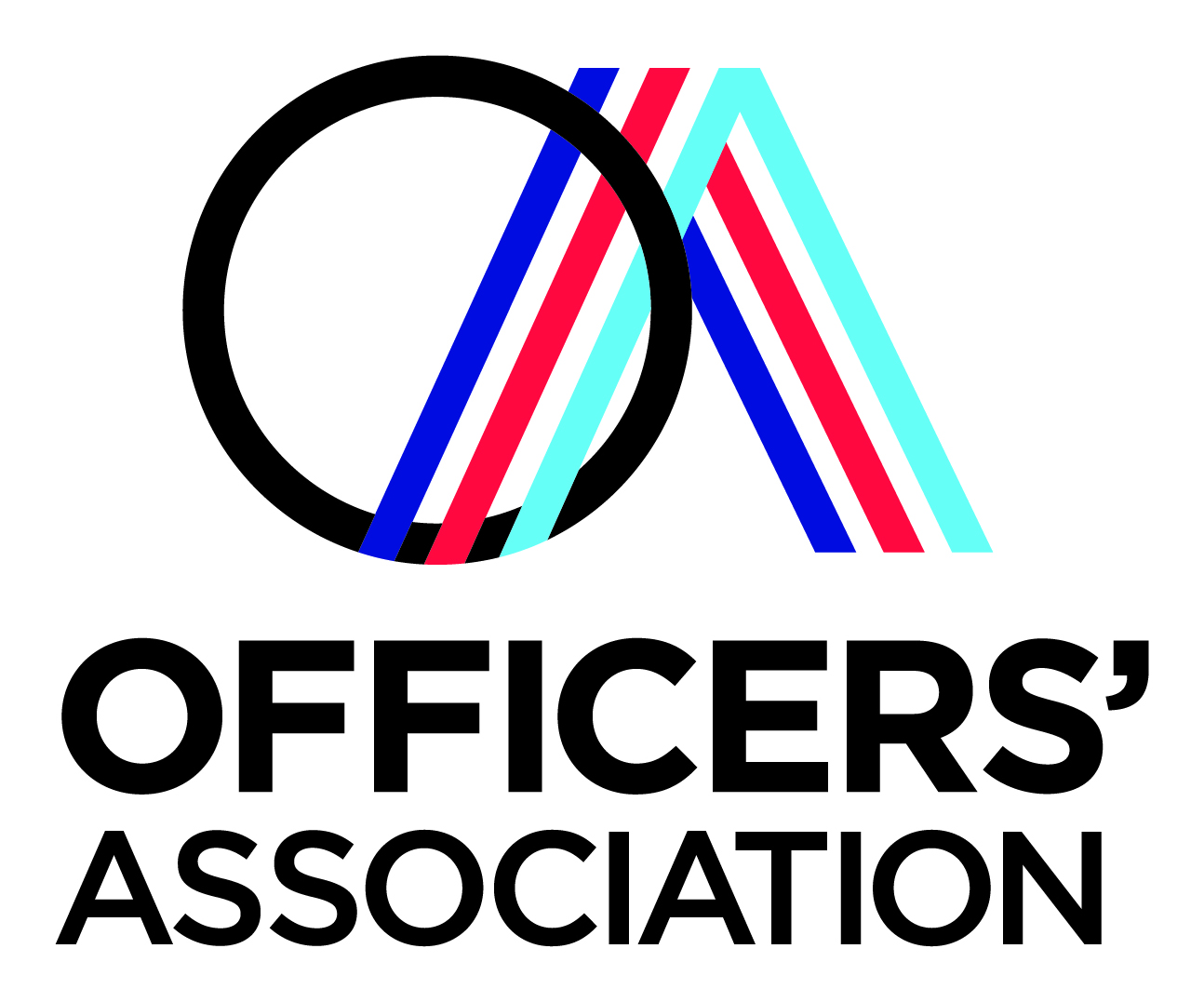New research published today has found that, despite the skills and experiences veterans offer, over a third of 50+ Service leavers reported experiencing ageism, anti-military bias or both, and 1 in 5 are working in non-permanent positions such as casual employment, some because they are unable to find sustainable long-term employment.
Funded by the Forces in Mind Trust (FiMT) and delivered by the Centre for Older Workers (CROW) for the Officers’ Association (OA), the report: Understanding Service Leavers aged 50+ lays bare the results of intensive interviews and workshops.
This timely and ground-breaking project investigates the experiences and attitudes of Service leavers aged 50+ as they transition from military to civilian employment, exploring the challenges faced across all ranks. The report comes at a vital time where the Coronavirus pandemic has made the job market extremely uncertain but where firms will need the versatility and skills of veterans to help their recovery.
The report calls for a consolidated approach between our Armed Forces, MOD, employers and charitable stakeholders in developing a programme to enable older workers to find the right arrangements for their final years of work. It advocates an extension of diversity and inclusion policies and practices to help combat bias against 50+ Service leavers.
Furthermore, The Centre for Ageing Better reports that over 800,000 people in the UK aged between 50 and 65 want to be working but are not, and that getting them into the right employment could contribute £18 billion worth of GDP. Fixing this could unlock significant benefits for the UK economy as it looks to rebuild in the aftermath of the Covid-19 economic shock.
Chief Executive of the Officers’ Association, Lee Holloway commented:
“One age group consistently stands out as experiencing increased difficulties in moving from military to civilian employment – those aged 50 years and over. While there is a growing body of evidence testifying to the barriers facing all veterans seeking employment, none has examined the hurdles faced by this age group.
More needs to be done to align the needs of older veterans available and wanting to work for longer with the quality and diversity of the work on offer. This report adds to the recent momentum in wider society of supporting and highlighting the special skills and experiences of our country’s veterans, now we must support them as they have supported us.”
Ray Lock, Chief Executive, Forces in Mind Trust commented:
“This research adds to a strong body of evidence which shows that many employers are not capitalising on the experience and skills of Service leavers. This report shows that businesses are missing out on the valuable skills gained from a long and successful career in the military, often due to employers’ misguided perceptions of military and age.
While Service leavers need to take the time to prepare themselves for the civilian job market, more needs to be done to help them to do this. Not just because it is the right thing to do but because it makes good business sense.”
Notes to Editors
For more information please contact:
- Daniel Baynes (daniel.baynes@plmr.co.uk) or Harriet Francis (harriet.francis@plmr.co.uk)
- Press Line: 07960245492
About the Officers’ Association
- The Officers’ Association is a registered charity and was incorporated under Royal Charter in 1921.
- The OA provide advice and financial help to relieve distress and hardship amongst those who have held a Commission in the Armed Forces, their families and dependants.
- The OA also support officers in their transition into civilian employment, enable them to live independently and overcome financial challenges.
Website: https://www.officersassociation.org.uk/
Twitter: https://twitter.com/OfficersAssoc
About FiMT
FiMT came about from a partnership between the Big Lottery Fund (‘the Fund’), Cobseo (The Confederation of Service Charities) and other charities and organisations. FiMT continues the Fund’s long-standing legacy of support for veterans across the UK with an endowment of £35 million awarded in 2012. http://www.biglotteryfund.org.uk/.
The mission of FiMT is to enable ex-Service personnel and their families make a successful and sustainable transition to civilian life, and it delivers this mission by generating an evidence base that influences and underpins policy making and service delivery.
FiMT awards grants (for both responsive and commissioned work) to support its change model around 6 outcomes in the following areas: Housing; Employment; Health and wellbeing; Finance; Criminal Justice System; and Relationships.
All work is published in open access and hosted on the Veterans’ Research Hub. A high standard of reportage is demanded of all grant holders so as to provide a credible evidence base from which better informed decisions can be made.
Website: www.fim-trust.org
Reports: www.fim-trust.org/reports/
Who we have helped: www.fim-trust.org/who-we-have-helped/
Twitter: @FIMtrust
About the report: Understanding Service Leavers Aged 50+ Their Challenges and Experiences in the Civilian Jobs Market
Read the Executive Summary
Service leavers aged 50+ are playing a critical role in helping Britain respond to the Coronavirus crisis, providing a rare glimpse of their skills on the ground. Witnessing the successful delivery of the NHS Nightingale hospital helped showcase to employers their value and core attributes. Yet many older Service leavers struggle to use these very skills when they leave the military.
This timely and ground-breaking project investigates the experiences and attitudes of Service leavers aged 50+ as they transition from military to civilian employment. It explores the challenges faced across all ranks and seeks to balance the findings from Service leavers with that of employers, highlighting examples of good practice being undertaken.
Funded by the Forces in Mind Trust (FiMT) and delivered by the Centre for Older Workers (CROW) for the Officers’ Association (OA), the report lays bare the results of intensive interviews and workshops and delivers key recommendations.
The report launched with a webinar on 29 April at 11.00am: https://www.officersassociation.org.uk/events/webinar-understanding-service-leavers-aged-50/
All registrants will receive an online copy of the full report following the broadcast.
METHODS AND SAMPLES
The core of the research was carried out through discussions with three groups of people:
- Service leavers who had transitioned out of the Armed Forces at or after the age of 50
- Service leavers who at the time of the research were in the process of transitioning out of the Armed Forces and would be completing their transitioning at or after the age of 50
- Managers who work in civilian organisations and who had responsibilities for recruiting staff.
Throughout the project, the perspectives of the three groups were compared and contrasted. For example, the expectations of people who were currently transitioning out of the Armed Forces about their job prospects in the civilian job market were compared with the job search experiences of people who have completed the transition process. Further, perceptions held by managers of 50+ Service people’s capabilities, expectations, and work ethics were compared with the reality as expressed by Service leavers themselves.
QUALITATIVE METHODS
Focus groups were conducted with present and future Service leavers and managers. Eleven focus group discussions were held with 50+ Service leavers (both current and former) in England and Scotland. With current Service people, researchers discussed their reasons for leaving the Armed Forces; their preparation for job searching outside of the military; and career plans after transition. Former Service people discussed their experiences in the job market and their careers after transition. One-on-one interviews with 50+ Service were conducted to complement focus group discussions. In total, thirty-six former Service people (twenty five former officers and eleven former senior ranks) and twenty-two current Service people (sixteen officers and five senior ranks) were interviewed. Twenty-seven managers were interviewed in six focus groups and one on one interviews. Participants were asked to discuss their experiences with and perceptions of 50+ Service leavers.
QUANTITATIVE METHODS
An online questionnaire survey was conducted of 50+ Service leavers (both current and former Service people). A twenty-seven question questionnaire to explore the same career and employability issues which were considered in the focus groups was designed and piloted. 183 former Service people and thirty-five Service people who were currently transitioning then took part in the survey. Additionally, using a Survey Monkey Panel and a database provided by the Officers’ Association, a survey was conducted of employers. A twenty-four question questionnaire was designed and piloted to measure their experiences and perceptions of 50+ Service leavers. 328 managers took part in the employer survey.
In addition to the focus groups and surveys, interviews were conducted with representatives of the Ministry of Defence, the Officers’ Association, and Service charities.


















